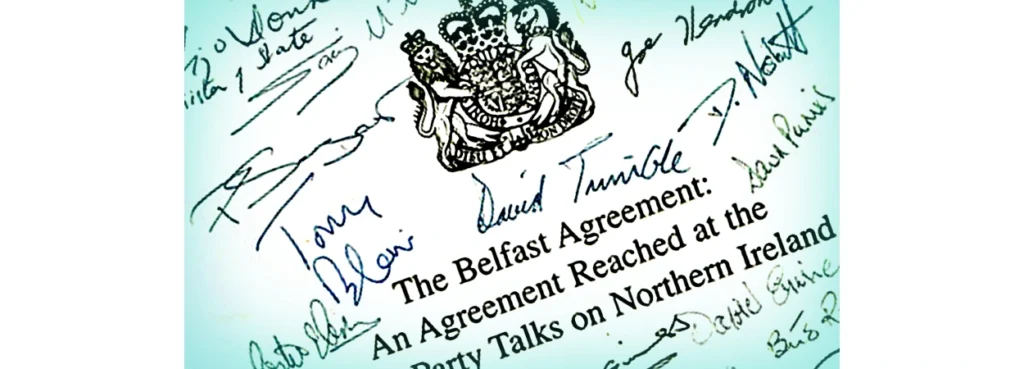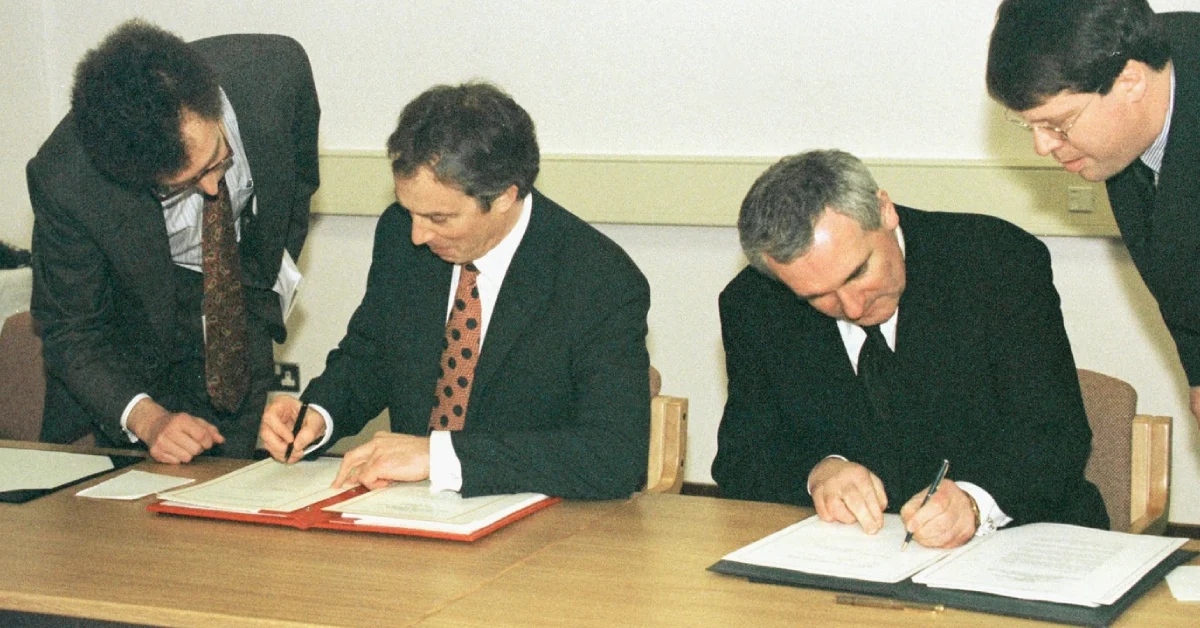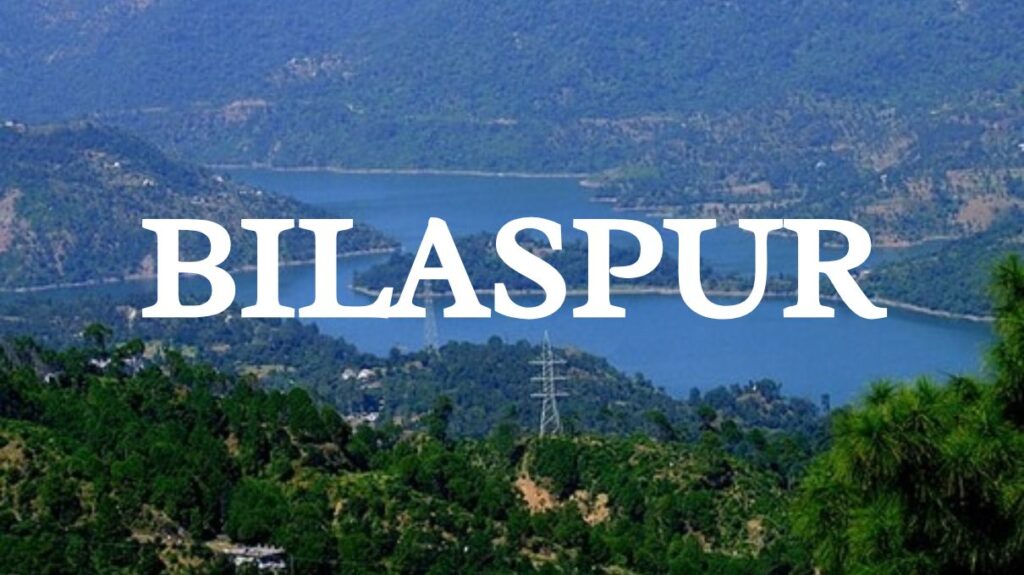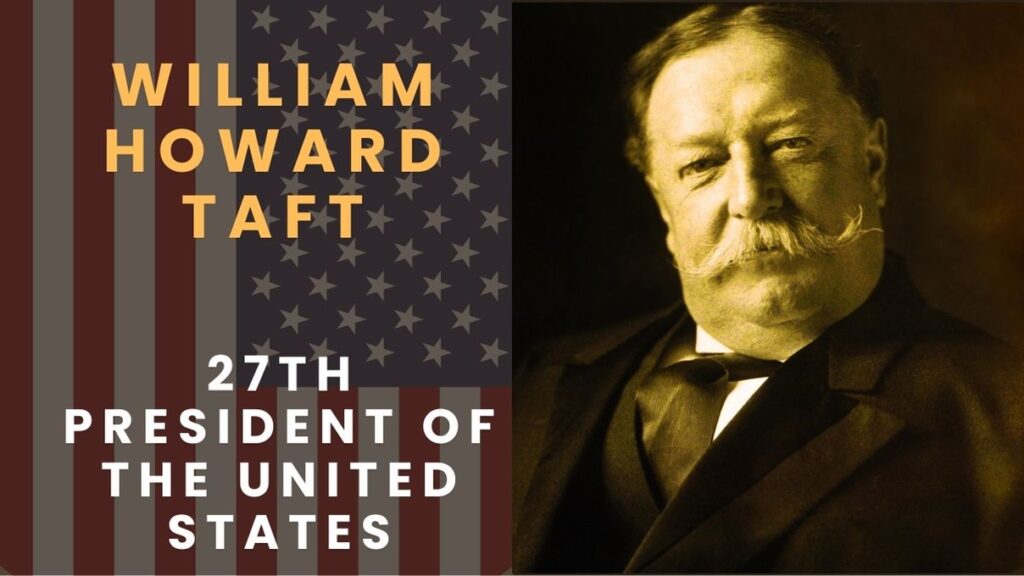Table of Contents
Introduction :
US President Joe Biden is visiting Belfast, the capital of Northern Ireland, to celebrate the 25th anniversary of the Good Friday Agreement. Good Friday Agreement was signed on 10 April 1998 in Belfast, Northern Ireland, between the Northern Irish factions and the governments of Ireland and Britain (NATO member). It ended 30 years of violence known as ‘The Troubles’. The accord has been hailed as a model agreement to end long-standing disputes. The agreement won a joint Nobel Peace Prize for David Trimble and John Hume, the then leaders of the two opposing parties in Northern Ireland. Its main objectives were to establish a power-sharing government and to promote reconciliation between the nationalist and unionist communities in Northern Ireland.

Historical Context And Background Of Good Friday Agreement:
Northern Ireland was long inhabited by the Gaels, who were Irish-speaking and predominantly Catholic. In 1169, Ireland was annexed by the British Crown. After the Nine Years’ War (15594–1603), Crown authority was re-established throughout Ireland. The rebel chieftain’s lands were confiscated by the crown and colonized with English-speaking Protestant settlers from Britain in the Plantation of Ulster. This led to the establishment of several Ulster towns and a permanent Ulster community linked to Britain. The “Home Rule” movement of Irish Nationalist MPs at Westminster led to the passage of the “Government of Ireland Act 1914”.
The Troubles :
In 1921, Ireland was partitioned by the “Government of Ireland Act” 1920. The six northeastern counties formed Northern Ireland. Ireland gained independence in 1922, and Northern Ireland remained with the United Kingdom. Tension is rising between those who want to remain with the UK (unionists) and those who want to join Ireland (nationalists). Catholics in Northern Ireland began to face discrimination in all aspects of life.
By the 1960s, an armed conflict (known as ‘The Troubles’) broke out between the Ulster Volunteer Force (unionists) and the Irish Republican Army (nationalists), which claimed over 3500 lives over the next four decades And thousands of people were injured. In 1972, British soldiers killed 14 unarmed protesters on what came to be known as Bloody Sunday. The IRA assassinated Lord Mountbatten (the last Governor-General of British India) and his grandson in 1979, and attempted to assassinate the then Prime Minister Margaret Thatcher in 1984.
Negotiating Parties and Key Figures :
The negotiators included the then British Prime Minister Tony Blair, the then Irish Prime Minister Bertie Ahern, George Mitchell, a former Democratic senator who served as an envoy to the then US President Bill Clinton, and eight representatives from Northern Ireland, including Sinn Féin (IRA). Teams were involved. political branch) and unionists.

Key Provisions Of The Good Friday Agreement:
- Northern Ireland will remain part of the UK.
- It can join Ireland if a majority of voters on both sides support it in a referendum.
- People born in Northern Ireland may have Irish or British nationality, or both.
- A new government would be formed, which would include both unionists and nationalists.
- The new government will have powers over local affairs, while the UK government will look after security, foreign policy, tax laws, immigration rules, etc.
- The weapons of paramilitary groups would have to be decommissioned, but those still in prison for violence would be released.
- To ensure accountability, fairness and community confidence in law enforcement, an independent oversight body, the Police Service of Northern Ireland (PSNI), was established to replace the Royal Ulster Constabulary (RUC).
- The Northern Ireland Human Rights Commission was established to protect human rights and equality in Northern Ireland, with implicit provisions for equal treatment and non-discrimination.
- The purpose of the agreement is to enhance co-operation between Northern Ireland and the Republic of Ireland (North-South Co-operation) through the establishment of institutional structures and bodies for joint decision-making and cooperation in areas of mutual interest.
- The agreement recognized the importance of maintaining and developing strong ties between Northern Ireland and the rest of the United Kingdom (the East–West relationship), ensuring that the interests and identities of all communities were respected and represented.
- The agreement established mechanisms to address disputes and breaches of the agreement. This included the establishment of an independent Monitoring Commission and a Joint Ministerial Council to oversee and facilitate the implementation of the agreement.
- A referendum was held in Ireland and Northern Ireland on 22 May 1998, and the deal was approved by 94% of voters in Ireland and 71% in Northern Ireland.
Effects of Brexit :
Following the exit of Northern Ireland (Northern Ireland is a part of the United Kingdom) from the European Union, new rules and regulations are needed to regulate business. Since the idea of border posts is a sensitive issue due to Northern Ireland’s turbulent political history, outposts were built at ports in Northern Ireland. Goods coming from the UK (England, Wales, Scotland) to both the Republic of Ireland and Northern Ireland went through bureaucratic red tape.
To overcome this, the UK Parliament and the European Union have approved a new ‘Windsor Framework’. However, Northern Ireland’s largest unionist party, the Democratic Unionist Party (DUP), voted against it. The DUP collapsed power-sharing in February 2022, stalling the proceedings of Stormont (the Northern Ireland Assembly) for over a year.
Conclusion :
While the Good Friday Agreement brought significant positive changes, challenges, and tensions have persisted in Northern Ireland. Issues such as unresolved legacy issues, ongoing sectarian divisions (protestants and catholics), and the repercussions of Brexit on the Irish border have presented ongoing challenges to the peace process. However, the agreement laid the foundation for a more stable and inclusive society in Northern Ireland and remains a pivotal framework for resolving conflicts and promoting reconciliation.




